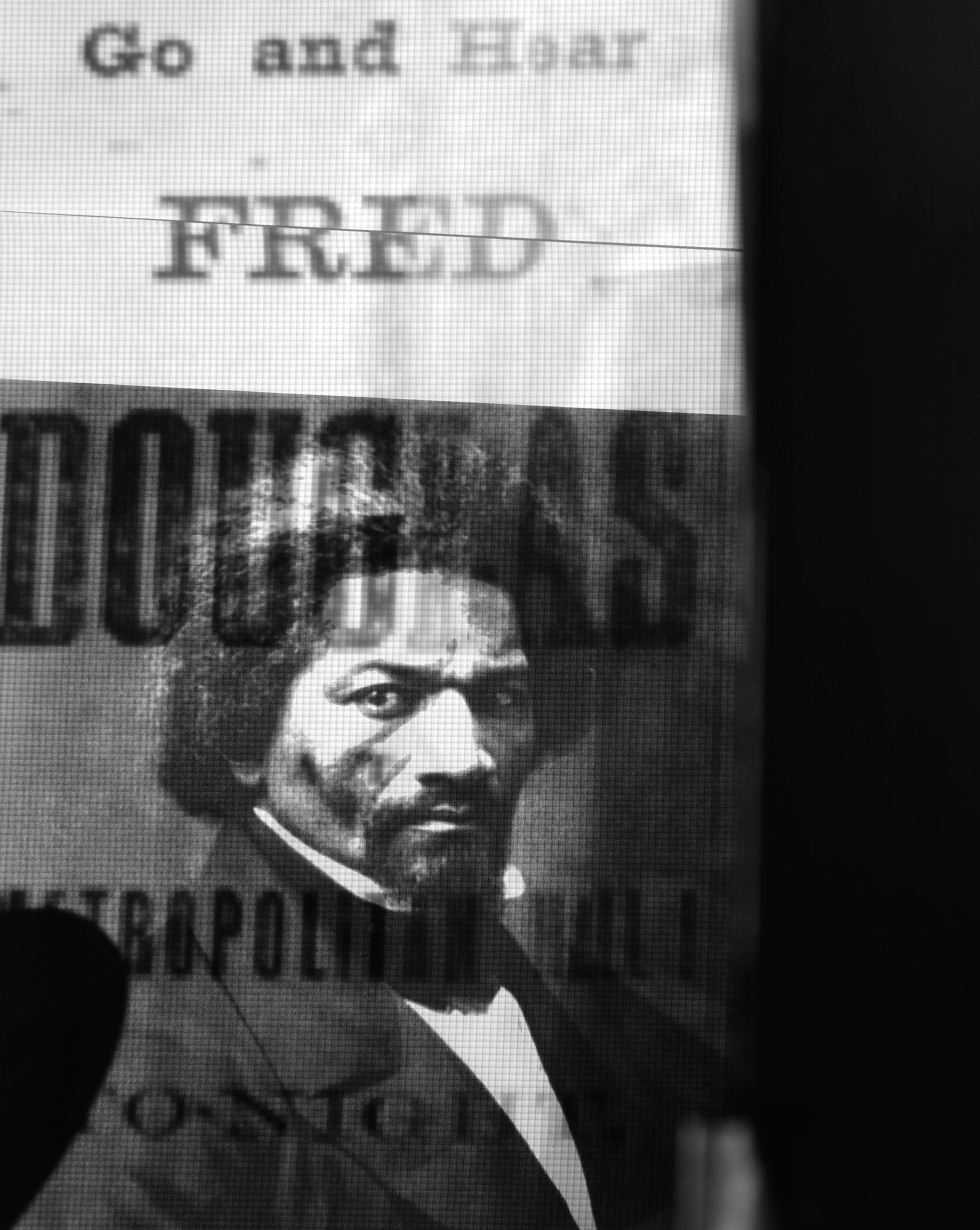
In his third autobiography, Life and Times of Frederick Douglass, while reflecting on the end of the Civil War, Douglass admitted that "a strange and, perhaps, perverse feeling came over me." Great joy over the ending of slavery, he wrote, was at times "tinged with a feeling of sadness. I felt I had reached the end of the noblest and best part of my life; my school was broken up, my church disbanded, and the beloved congregation dispersed, never to come together again.” In recalling the postwar years, Douglass drew from a scene in a Shakespearean tragedy to express his memory of that moment: "Othello's occupation was gone.' In Othello, Douglass perceived a character, the former high-ranking general and "moor of Venice," who had lost authority and professional purpose. Douglass harbored a special affinity for this most famous Black character in Western literature, whose mental collapse and horrible end lingered as a warning in a famous speech: "O, now, for ever / Farewell the tranquil mind! Farewell content!"
In 1866, Douglass took up his pen to try to capture this mome of transformation, both for himself and for the United States. For the December issue of this magazine that year, in an essay simply titled "Reconstruction," Douglass observed that "questions of vast moment" lay before Congress and the nation. Nothing less than the essential results of the "tremendous war," he writes, were at stake. Would the war become "a miserable failure ... a scandalous and shocking waste of blood and treasure," or a "victory over treason," resulting in a newly reimagined nation "delivered from all contradictions and based loyalty, liberty, and equality"? In this inquiry, Douglass's new role as a conscience of the country became clarified. His leadership had always been through words and persuasion, written and oratorical. How, now that the war was over, would he employ his incomparable voice?
This story is from the December 2023 edition of The Atlantic.
Start your 7-day Magzter GOLD free trial to access thousands of curated premium stories, and 8,500+ magazines and newspapers.
Already a subscriber ? Sign In
This story is from the December 2023 edition of The Atlantic.
Start your 7-day Magzter GOLD free trial to access thousands of curated premium stories, and 8,500+ magazines and newspapers.
Already a subscriber? Sign In

After the Miracle
Cystic fibrosis once guaranteed an early deathbut a medical breakthrough has given many patients a chance to live decades longer than expected. What do they do now?

WILLIAM WHITWORTH 1937-2024
WILLIAM WHITWORTH, the editor of The Atlantic from 1980 to 1999, had a soft voice and an Arkansas accent that decades of living in New York and New England never much eroded.

Christine Blasey Ford Testifies Again
Her new memoir doubles as a modern-day horror story.

Is Theo Von the Next Joe Rogan?
Or is he something else entirely?

Orwell's Escape
Why the author repaired to the remote Isle of Jura to write his masterpiece, 1984

What's So Bad About Asking Where Humans Came From?
Human origin stories have often been used for nefarious purposes. That doesn't mean they are worthless.

Miranda's Last Gift
When our daughter died suddenly, she left us with grief, memories and Ringo.

BEFORE FACEBOOK, THERE WAS Black Planet
An alternative history of the social web

CLASH OF THE PATRIARCHS
A hard-line Russian bishop backed by the political might of the Kremlin could split the Orthodox Church in two.

THE MAN WHO DIED FOR THE LIBERAL ARTS
Chugging through Pacific waters in February 1942, the USS Crescent City was ferrying construction equipment and Navy personnel to Pearl Harbor, dispatched there to assist in repairing the severely damaged naval base after the Japanese attack.